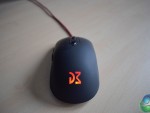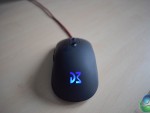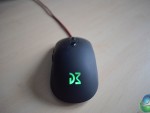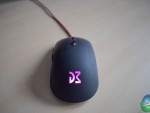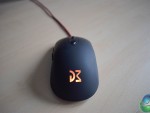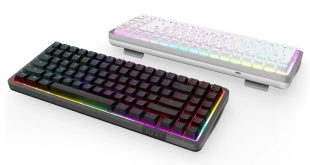While a mouse review would usually begin with an overview of any accompanying software, Dream Machines have deliberately not used any software with the DM1 Pro. They say ‘that software can sometimes be a hassle – crashing, bugging out, or even preventing your devices from working at all.' This means you cannot change things like the polling rate, set the 5 DPI stages or customise lighting.
Personally, I can understand this approach – but it doesn't really sit well with me. The DPI stages are locked at 400/800/1600/3200/5000 when this could easily be changed via software, as can be done with nearly every other mouse on the market. If Dream Machines do not want software to cause their mice to stop functioning properly – which is admirable, let us not mistake their intentions – a more sophisticated approach would be having internal memory built into the mouse.
This way users can configure lighting, DPI stages and so on, how they want it – and those settings can be saved directly to the mouse. TT eSports did something like this with their Level 10M Advanced mouse and it is very successful. Having no software at all just reduces the amount of control users have of their mouse.
That aside, the mouse itself is very comfy. It has a fairly high arch to it, which I like as it lets you anchor the base of your palm at the bottom of the mouse. I found this let me use a claw or palm grip with ease – my personal preference is a claw-style grip but there is the ability to do both depending on your style of play.
The rubberised matte finish is also excellent. It does mean the DM1 Pro does not look like a premium device, but it is very practical. It simply ensures great grip no matter what – and even after a few rounds of Doom, when my hands were getting a bit sweaty, I had solid grip on the DM1 Pro.
Weighing just 89g, however, could be a boon to some or an annoyance to others. For FPS gamers, where twitch reactions and fast-movements are key, it would undoubtedly help. Personally, I prefer a weightier mouse, but I can see the appeal of a light mouse. To me, though, nothing can beat the feeling of a sturdy mouse gliding smoothly – I just raise the DPI to compensate.
Above we can see the different lighting options. Each backlight colour is linked to a DPI stage, and this cannot be changed – which brings us back to my gripe about no software.
The light also pulses gently, too, which some may find calming. Personally, and of course this is subjective, I prefer static lights, and not being able to configure the lighting in any way frustrates me greatly.
Still, the colours do look good at the lighting is even across the logo.
Using the mouse day-to-day was satisfying thanks to the good-quality sensor. I found tracking was very accurate, especially when at a low sensitivity. This sort of thing is very useful in Photoshop, if I have to cut around a sharp corner or draw around a complex shape. For normal use, I stuck with the 3200 DPI setting and it worked flawlessly.
 KitGuru KitGuru.net – Tech News | Hardware News | Hardware Reviews | IOS | Mobile | Gaming | Graphics Cards
KitGuru KitGuru.net – Tech News | Hardware News | Hardware Reviews | IOS | Mobile | Gaming | Graphics Cards


